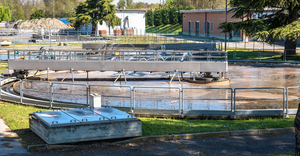June 1, 2004
Kim A. O'Connell Contributing Editor
WHERE TRASH GOES, SO GOES ODOR. But the mere presence of odor — however unpleasant — is not enough to prohibit the siting or expansion of a landfill, a Pennsylvania court recently stated. The court's decision is likely to set a nationwide precedent that may deter similar lawsuits against landfill owners and operators.
In Berks County, Pa., county officials and citizens groups have long opposed the existence and proposed expansion of Allied Waste/BFI's Conestoga Landfill. The county brought a lawsuit against the Scottsdale, Ariz.-based waste company on the grounds that odor from the landfill was a public nuisance. In support for the suit, the county filed 17 “noxious odor violations,” as well as numerous citizen complaints.
In May, the trial court dismissed all four counts in the case, stating that the odor violations and public complaints were not sufficient under Pennsylvania law to constitute significant injury and invasion of rights. The judge wrote that, for odor to be considered a public nuisance under state law, the plaintiff must illustrate that landfill odors cause “significant harm, by being offensive, annoying or intolerable, setting forth material facts sufficient to establish the claim.”
The violations and complaints filed by the county “may well be accurate,” the court stated in its decision, “and the court is certainly aware that an offensive odor from a landfill could create a significant interference with public health and could produce a long-lasting deleterious effect.” However, the complaints indicate only that the violations are perceived to be occurring, not that they are causing injury, the decision states. “There is nothing to establish the extent of how the odors interfere with the public health or whether the odors are of a continuing nature or produce a permanent or long-lasting effect.”
This is the most significant outcome of the case, says attorney Alan K. Cotler, a partner with the Philadelphia-based Reed Smith firm, which represented BFI. “BFI has worked successfully with Berks County in the past,” Cotler says. “The community has made millions of dollars from host fees that have vastly improved county infrastructure … BFI has been working with the Department of Environmental Protection on the [landfill's] intermittent odors. The landfill is state-of-the-art.”
Some waste industry insiders say that the court decision has set a precedent that may prevent a flood of similar lawsuits from being filed nationwide. “We're hopeful that this case will deter other local governments from filing similar lawsuits,” says David Biderman, general counsel for the National Solid Wastes Management Association, Washington, D.C. “We would hope that neighboring communities would work with landfill owner/operators in a collaborative process instead of going to the courts. It's important for waste disposal facilities to build a bridge to the community.”
You May Also Like


